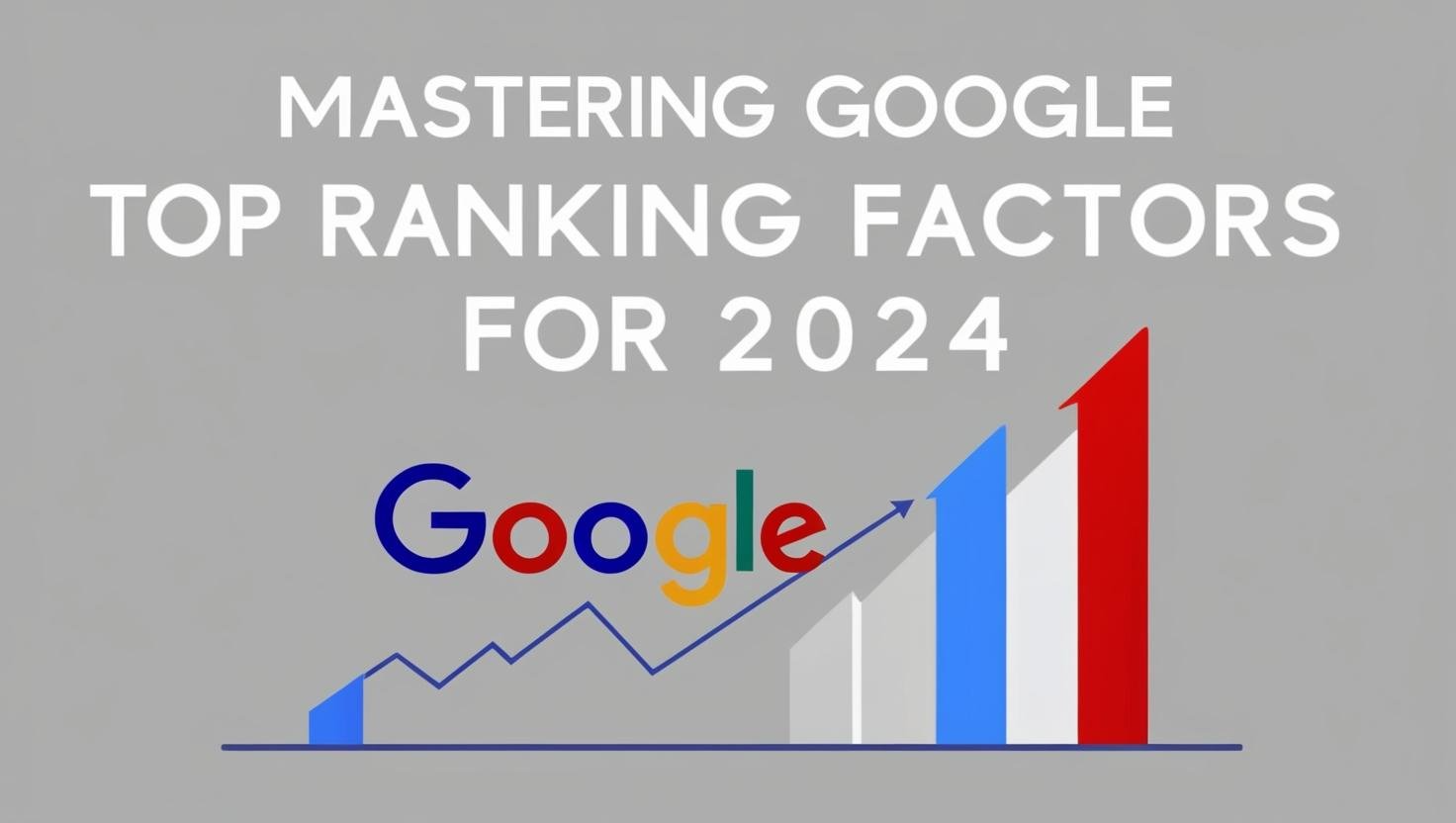In the dynamic world of SEO, understanding and mastering Google’s ranking factors is very important for any website that aims to improve its visibility and drive more traffic. Staying atop of Google’s constantly evolving algorithms is essential for any digital marketer or content creator looking to enhance their online presence. This detailed exploration sheds light on the pivotal elements that significantly influence Google rankings and provides strategic insights on optimizing these factors to boost site performance and attract substantial traffic.
1. Mobile-First Optimization
With mobile devices generating significant web traffic, Google’s priority is mobile-friendly websites. Sites that are not just responsive but also optimized for speed and usability on mobile platforms tend to perform better in search rankings. This includes implementing touch-friendly navigation and ensuring text readability across all devices.
2. Core Web Vitals
Launched as essential metrics for user experience quality, Core Web Vitals evaluate loading speed, interactivity, and visual stability. Achieving good scores in these areas suggests a polished user experience, which Google rewards with higher search rankings, thereby improving visibility and driving more organic traffic.
3. E-E-A-T (Experience, Expertise, Authoritativeness, Trustworthiness)

In a bid to prioritize high-quality content, Google evaluates content through the lens of Experience, Expertise, Authoritativeness, and Trustworthiness. Content that reflects deep knowledge and insight, authored by recognized experts, and cited by trustworthy sources tends to rank higher, making credibility a key component of successful SEO.
4. Quality Backlinks
The influence of backlinks on rankings remains profound. Google assesses the authority and relevance of websites linking back to your site, with a preference for those that are themselves authoritative. Cultivating backlinks from well-regarded sites within your industry can significantly boost your SEO profile.
You may also like: Key SEO Techniques for Success in an AI-Driven Search Era
5. User Experience (UX)
A stellar user experience is crucial for keeping visitors on your site longer. This involves intuitive site architecture, fast load times, and engaging easily accessible content. Enhancing UX can decrease bounce rates and encourage users to interact more with your content which has a positive effect on your rankings.
6. Page Speed
Page speed is more critical than ever, as it influences not only user experience but also SEO rankings. Google rewards websites that load quickly across all devices. Optimizing images, leveraging browser caching, and reducing server response times are effective ways to enhance page speed and, consequently, search engine rankings.
7. Keyword Optimization
Effective keyword optimization goes beyond inserting relevant keywords into your content. It involves understanding user intent, using keywords contextually, and incorporating them into meta tags and headings to enhance readability and user engagement. Well-optimized pages are more likely to draw organic traffic that is both high in quantity and quality.
8. Structured Data
Structured data, or schema markup, helps search engines understand and categorize page content, enabling enhanced search listings, like rich snippets. This clearer communication with search engines can improve how your pages are represented in search results, making them more attractive to potential visitors.
9. Social Signals
Social signals such as shares, likes, and online brand mentions can broaden your content’s reach and establish its popularity, indirectly influencing SEO. A strong social media strategy enhances your online presence and can lead to higher organic traffic and increased backlink opportunities.
You may also like: Mastering Digital Media Buying: Key Targeting Strategies Explained
10. Content Freshness
Google values fresh content, actively rewarding websites that update their content regularly. This could involve revising outdated articles, adding new data, or continuously producing current content that aligns with recent trends or developments. Keeping your content fresh is crucial for maintaining and improving search engine visibility.
11. HTTPS and Security
Security is a top priority for Google, which prefers to rank secure sites higher in its search results. Migrating from HTTP to HTTPS secures your user data and signals trust to search engines, which can lead to improved rankings.
Bottom line!
Mastering Google’s ranking factors requires a balanced approach focusing on both technical and content-related elements. By optimizing these key areas, website owners can enhance their visibility, drive traffic, and achieve sustainable SEO success. Stay updated with Google’s algorithm changes and adjust your strategies accordingly to remain competitive in the search results.






